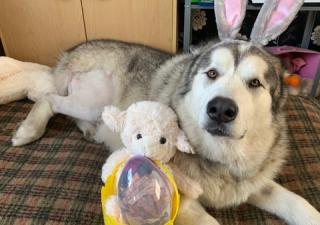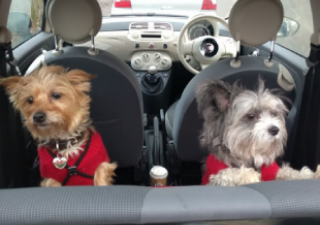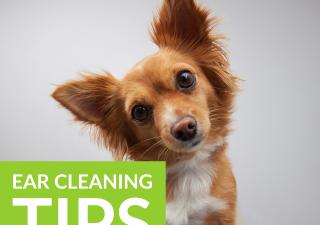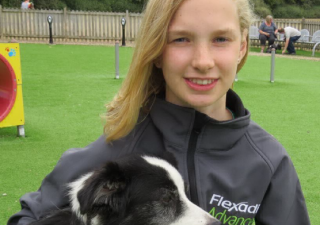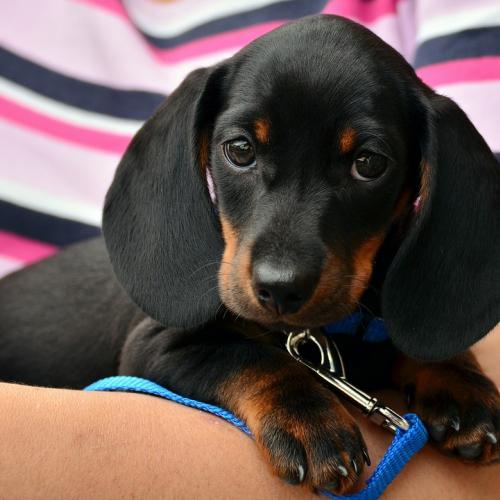
Can I prevent my dog from being afraid of fireworks?
Back to overviewA fear of fireworks and other banging noises is not inevitable. Puppies that experience these types of noises in a relaxed way during their very early development will generally learn not to be bothered by them. Older dogs that haven’t yet become fearful of them can also be taught there is nothing to be worried about.
How do I prevent my puppy being afraid of fireworks?
A puppy’s ability to feel fear isn’t properly developed until he or she is around nine weeks of age, although this does vary between individuals and breeds. Therefore, if a puppy experiences something new in a calm and relaxing way before this age they will generally learn it won’t do them any harm. This is nature’s way of teaching them not to be worried by everyday things they would normally experience whilst they are still too young to stray far enough from the ‘den’ to encounter real danger. After about 8 to 9 weeks of age, puppies start to show some fear and can go through a phase of being particularly sensitive to anything scary. However they will continue to accept new things that do not frighten them. Their sensitivity to accepting new things starts to taper at around 12 to 13 weeks of age, but never stops entirely so older dogs can continue to learn not to be worried by new things throughout their life.
Puppies who are born close to a firework festival will experience firework sounds naturally during this period of heightened acceptance. Therefore all you need to do is to keep an eye on your puppy to check he or she is not worried by the noises, and to ensure they are able to cope as explained below if you see any signs of concern. Puppies born at other times of the year would benefit from hearing recordings of firework sounds. Although recordings are not as effective as the real thing they can still have a positive effect. Start by playing the sounds very quietly in the background for about 10 minutes twice a day, and gradually increase the volume over a couple of weeks until you reach the normal volume of a firework outside. You can also play recordings to older dogs that are not yet showing signs of being afraid of fireworks to help prevent fear developing. Make sure this does not accidentally scare your dog as explained below.
How can I make sure this doesn’t scare my puppy or dog?
Although puppies generally accept new noises without being worried by them until they are about 2 months of age, there will be individual variation, and older dogs are less accepting. It is therefore important to keep any recordings used very quiet at first so your puppy or dog can get used to them gradually, and to be aware that some dogs may be worried by the noises even when they are very quiet. Observe your puppy or dog for signs of distress, whether during real fireworks or when using sound recordings. If these are seen when using a sound recording then stop this and try again another day and a much lower volume. If your puppy is showing signs of fear around real fireworks then help them cope as explained in the blog ‘It is my dog’s first firework season – what should I do?’. Some of the signs that a puppy or dog is worried are quite subtle and so you may not always notice them. The key things to look for include: -
· Licking the nose or lips
· Yawning (when not tired)
· Chomping – like chewing a toffee
· Looking worried e.g. a furrowed brow, wide eyes or looking around a lot
· Drooling
· Panting even though s/he isn’t hot and hasn’t been running around
· Cowering e.g. lowering his/her head or body.
· Tucking his/her tail
· Running away (not in play) or hiding
· Wetting him/herself
· Not daring to move
If your puppy or dog is showing strong signs of fear around real fireworks despite your attempts to help them cope, or is fearful of recorded sounds even when they are very quiet, it would be wise to seek the help of a Clinical Animal Behaviourist as soon as possible to prevent this deteriorating.
Stephanie Hedges BSc (Hons) CCAB
Canine Behaviour Counsellor
Full member of the Association of Pet Behaviour Counsellors
ASAB Certified Clinical Animal Behaviourist (CCAB)
Animal Behaviour & Training Council (ABTC) Registered Clinical Animal Behaviourist
Tips & Tricks
- Easter is a wonderful time of year with so many chocolate Easter eggs in abundance, but make sure you do not let your pet near them.
- With Brexit deal still in negotiation and a possibility of a ‘no deal’ scenario, there are no concrete answers just yet – but to help you become more informed, here is our Q&A on what we can find so far.
- Build-up of wax and debris in your pet's ear canals can lead to discomfort and irritation. Cleaning your pet’s ears can have a lot of benefits and here are some tips to get you started!
- We had a great time catching up with Mariann Bayliss, our sponsored agility handler last week. We met her competing dog, Ila, and her 5 month old puppy Coral.

